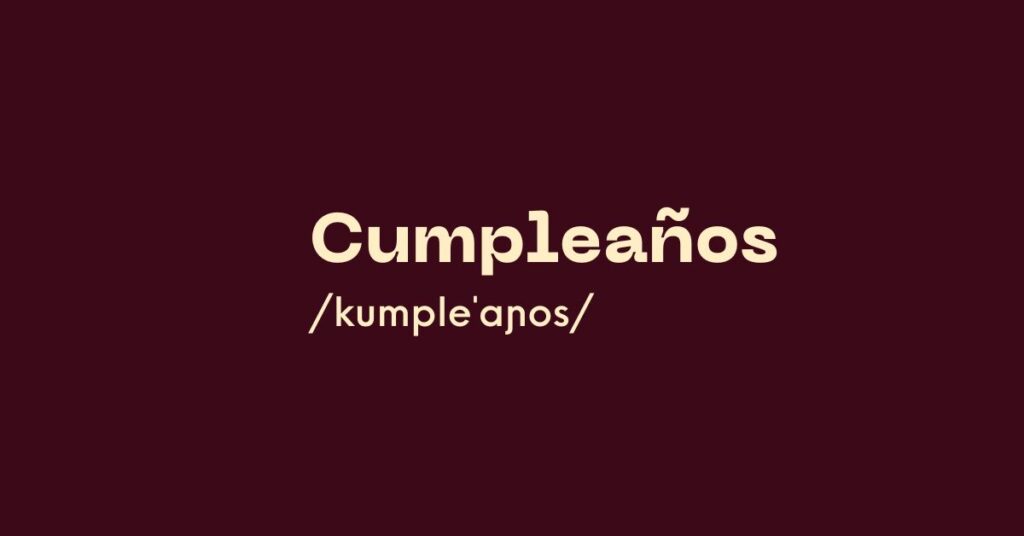Today’s Spanish word of the day is “cumpleaños”.
It’s a masculine noun meaning “birthday”.
The word “cumpleaños” is a compound word formed from the verb “cumplir” (“to fulfill”) and “años” (“years”), so it literally means “fulfill years”.
Despite being a singular noun, “cumpleaños” always ends in an s, because the “años” part of the word refers to multiple years (unless you’re one year old, but even then, the word would still be “cumpleaños”!) If you want to say something like “their birthdays are in February”, you would still use the word “cumpleaños” without adding anything extra to signify a plural: “Sus cumpleaños son en febrero”.
Perhaps unsurprisingly given that the word “cumpleaños” comes from combining the verb “cumplir” with “años”, it is possible to talk about birthdays and turning a certain age using the verb “cumplir” and the noun “años” separately, for example:
- Cuántos años cumples este año? – How old are you turning this year? (Literally “How many years do you fulfill this year?”)
- Mañana cumplo 40 años – Tomorrow I turn 40 (literally “Tomorrow I fulfill 40 years”)
Example sentences
Le compré un regalo para su cumpleaños.
I bought him/her a gift for his/her birthday.
El pastel de cumpleaños estaba delicioso.
The birthday cake was delicious.
¡Ojalá que tu cumpleaños sea tan increíble como tú!
I hope your birthday is as amazing as you are!
La ciudad festejó el cumpleaños de su fundación con un desfile histórico.
The city celebrated the birthday of its founding with a historical parade.
El próximo fin de semana es el cumpleaños de mi hermano.
Next weekend is my brother’s birthday.

